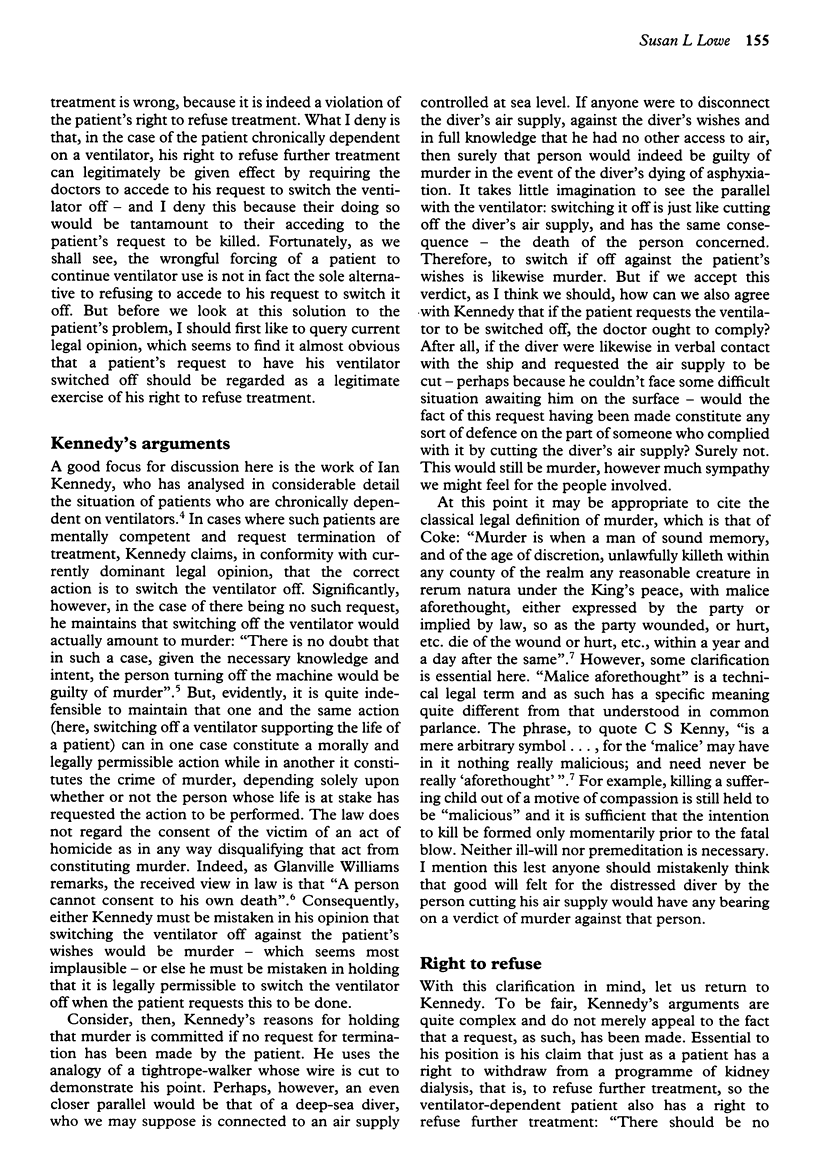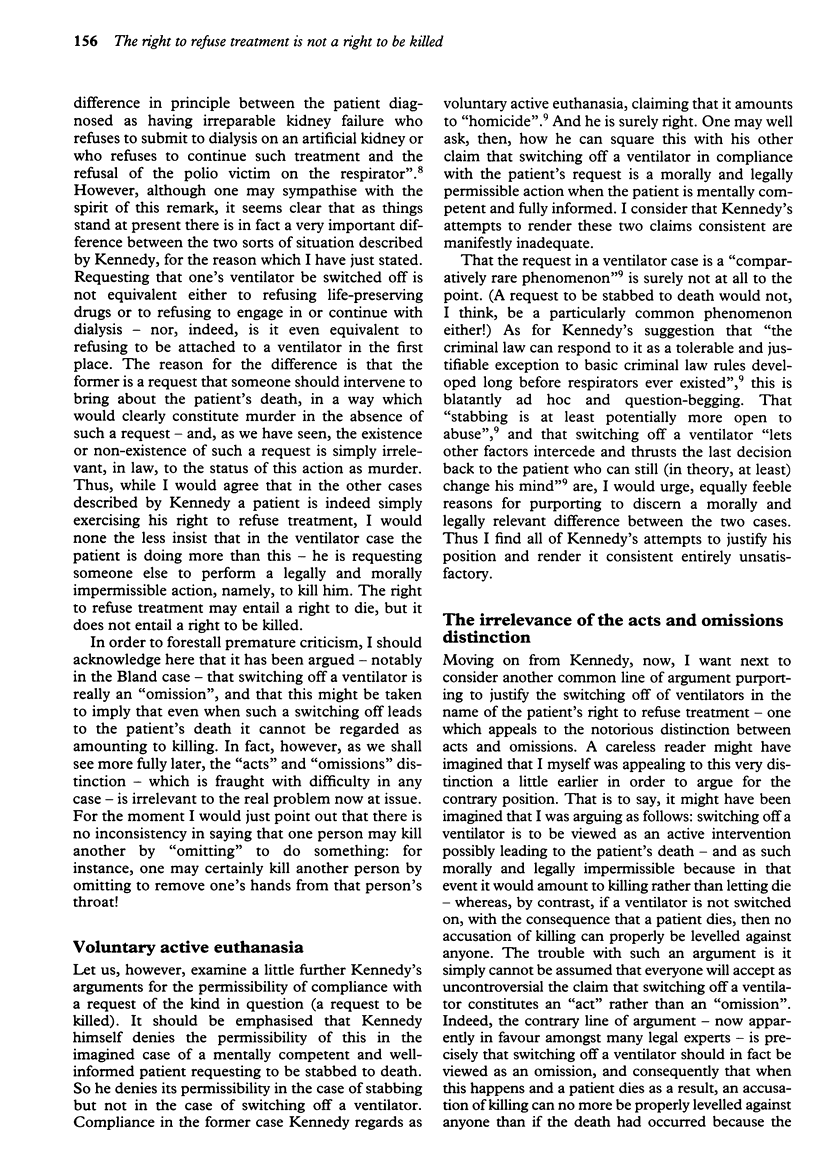Abstract
It is widely accepted now that a patient's right to refuse treatment extends to circumstances in which the exercise of that right may lead to the patient's death. However, it is also often effectively assumed, without argument, that this implies a patient's right to request another agent to intervene so as to bring about his or her death, in a way which would render that agent guilty of murder in the absence of such a request. But the right to refuse treatment can, logically, have no such implication, and the mistaken supposition that it does conflates a right to die with a right to be killed. Confusion over this issue is brought out by an examination of conflicting opinion concerning the permissible termination of ventilation for mentally competent patients. A wider lesson may be drawn regarding the need for the ethical assessment of new forms of life-sustaining medical technology.
Full text
PDF




Selected References
These references are in PubMed. This may not be the complete list of references from this article.
- Kennedy Ian M. Switching off life support machines: the legal implications. Crim Law Rev. 1977 Aug;1977:443–452. [PubMed] [Google Scholar]


